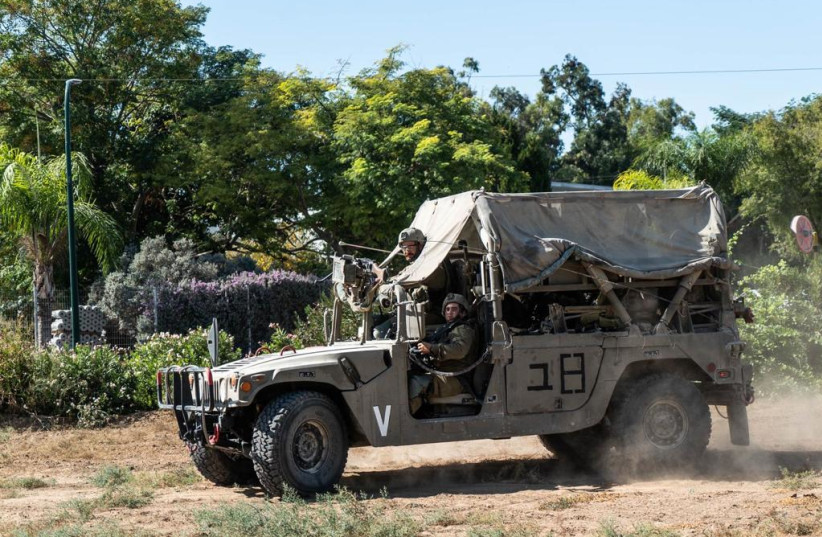With the number of people diagnosed with the coronavirus Omicron variant continuing to soar across the country, the Israeli military has canceled all reserve drills for the month of January. There will be specific drills that can be approved by commanders according to operational needs.
According to senior military officers, more than 6,380 troops were diagnosed with the coronavirus on Tuesday, with another 6,928 self-isolating at home. There have been several outbreaks of the virus on various IDF bases.
“We are not surprised, and we have been preparing for this increase in infection rate,” said one senior officer, explaining that there have been more than 1,000 new cases diagnosed in the past 24 hours.
As the number of confirmed cases in the Israeli military continues to skyrocket, the officer said the IDF expects them to rise even further in the coming two weeks, when the fifth wave of the virus is expected to peak. IDF Chief of Staff Lt.-Gen. Aviv Kohavi visited the Home Front Command’s Alon Headquarters along with the head of the Home Front Command, Maj.-Gen. Uri Gordin, and headquarters commander Brig.-Gen. Shlomi Ben Mocha, and was presented with the challenges that it’s facing in the current wave as well as its action plan to deal with the Omicron variant.
According to the military, the headquarters is focusing on tests, samplings, and contact tracing as well as additional efforts to help the Health Ministry, Magen David Adom, and healthcare providers in the vaccination campaign for senior citizens. While the military will not at this time keep troops on base in an attempt to keep the virus at bay, several battalions of combat troops will not be allowed furloughs for the next week and a half in order to maintain operational competency.
Troops serving in closed units, meaning that they sleep on base, will have to quarantine at a military facility if they come into contact with an infected person, instead of self-isolating at home. “We are holding situational awareness meetings daily,” he said.
In order to diagnose troops, the military has procured over a million antigen tests and has already dispersed tens of thousands of the tests to military clinics across the country.
As in previous waves, IDF units will return to the configuration of company capsules, with an emphasis on capsules in vital units, and will limit the number of people present in dining rooms and synagogues. The IDF will also limit the number of ceremonies that will be held over the next month to a bare minimum and will bar civilians from attending them. Civilians will also be barred from entering military bases except for those providing critical services.
Open-air events will be limited to 200 participants, and events held indoors will be limited to 50% capacity of the location and will not exceed 100 participants. In order to take part in any activity indoors, troops will have to show their Green Pass.
Troops and civilian employees of the IDF who do not have a Green Pass are required to perform a supervised antigen test that will be valid for one week. PCR tests will be available to troops who are 60 and older or in at-risk groups.
At least three top generals – IDF Manpower Directorate head Maj.-Gen. Yaniv Assur, and Military Liaison to the Palestinians Maj.-Gen. Ghassan Alian – also tested positive for the coronavirus on Monday, the military said.
Brig.-Gen. Elon Glasberg, the IDF’s top medical officer, was also diagnosed with coronavirus in early January after catching it from one of his children. “He feels well and will continue to work from his home until the end of his convalescence,” the military said at the time, stressing that his illness will not affect the day-to-day functioning of the IDF Medical Corps.
IDF cancels reserve drills for January as troops infected with Omicron passes 6,000
In order to diagnose troops, the military procured over a million antigen tests and dispersed tens of thousands of tests to military clinics.

